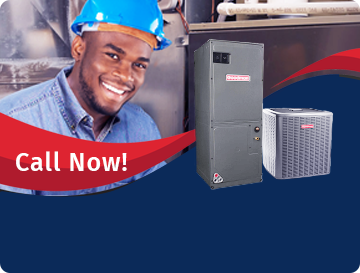As homeowners increasingly seek eco-friendly and energy-efficient solutions for home climate control, heat pumps have emerged as an ideal option to meet these demands. Offering heating and cooling capabilities, these versatile systems harness renewable energy from the environment to provide year-round comfort while reducing energy consumption and associated costs. If you are considering investing in a new HVAC system, it’s essential to understand what heat pumps have to offer and how they can significantly impact your home’s comfort, energy efficiency, and carbon footprint. The Hugee Corporation specializes in providing top-tier heat pump systems at the forefront of technology and sustainability.
Explore the ins and outs of heat pumps, diving deep into their various types, benefits, and applications in residential settings. Whether you are seeking to replace an existing heating or cooling system or looking to optimize your home’s energy efficiency, understanding the advantages and practical considerations of heat pumps is essential for making an informed decision. With the Hugee Corporation’s expertise in cutting-edge heat pump technology, homeowners can confidently approach their climate control solutions, knowing they are making a smart, sustainable choice for their home.
1. Understanding Heat Pump Technology: How It Works and Different Types
At their core, heat pumps work by transferring heat from one location to another, using a small amount of energy to achieve this transfer. Depending on the season, they can either extract heat from the outdoor air to warm your home or expel indoor heat to create a cooling effect. Some common types of heat pumps include:
- Air-Source Heat Pumps: The most widely used type, air-source heat pumps extract heat from the outdoor air and transfer it indoors for heating, or vice versa for cooling.
- Ground-Source (Geothermal) Heat Pumps: These systems leverage the stable temperatures underground to provide heating and cooling by exchanging heat with the earth.
- Water-Source Heat Pumps: Utilizing a nearby water source, such as a pond, these heat pumps transfer heat between your home and the water.
- Ductless Mini-Split Heat Pumps: Offering flexibility and zoned climate control, mini-splits consist of individual indoor units connected to an outdoor compressor, allowing for targeted heating and cooling in specific areas of your home.
2. The Advantages of Heat Pumps: Energy Efficiency, Environmental Impact, and More
Investing in a heat pump system offers numerous benefits for homeowners, including:
- Energy Efficiency: Heat pumps require less energy to achieve the same level of heating and cooling as traditional HVAC systems, resulting in reduced energy consumption and lower utility bills.
- Reduced Carbon Footprint: By harnessing renewable energy from the environment, heat pumps significantly reduce greenhouse gas emissions, contributing to a more sustainable, eco-friendly living space.
- Year-Round Comfort: Heat pumps provide both heating and cooling capabilities with a single unit, offering consistent comfort throughout the year.
- Potential Rebates and Incentives: Many local and federal programs offer rebates and incentives for homeowners who install energy-efficient heat pump systems.
3. Choosing and Installing the Right Heat Pump for Your Needs
Selecting and installing the ideal heat pump system for your home involves careful consideration of various factors:
- Assess Your Heating and Cooling Requirements: Consult our knowledgeable professionals to determine the appropriate heat pump size, type, and capacity based on your home’s needs and climate.
- Energy Efficiency Ratings: When comparing heat pump options, consider their Seasonal Energy Efficiency Ratio (SEER) for cooling and Heating Seasonal Performance Factor (HSPF) for heating, indicating energy efficiency levels.
- Installation Quality: Proper heat pump installation is critical for optimal performance and efficiency. Entrust our experienced technicians with the installation process, ensuring long-term reliability and peak performance.
- Compatibility with Existing Systems: If you are incorporating a heat pump into an existing HVAC system, our professionals will help you determine the optimal integration method for maximum benefit.
4. Ongoing Maintenance and Support for Your Heat Pump System
To maintain peak performance and prolong the lifespan of your heat pump, regular maintenance and support are essential:
- Schedule Routine Maintenance: Engage our professionals for periodic inspections, cleaning, and maintenance tasks, such as checking refrigerant levels, air filters, and electrical connections.
- Monitor System Performance: Keep an eye on your heat pump’s performance and efficiency, reporting any unusual noises, temperature inconsistencies, or declines in performance to our technicians for prompt service.
- Address Issues Promptly: If you encounter any problems or concerns with your heat pump, seek assistance from our professionals immediately to prevent potential damage and costly repairs.
Embrace the Power of Heat Pumps for a Comfortable, Efficient, and Sustainable Home
Heat pumps offer a versatile, energy-efficient, and environmentally friendly home heating and cooling solution. Understanding the different types, benefits, and practical considerations of heat pumps can significantly enhance your home’s comfort while promoting sustainability for a greener future.
At Hugee Corporation, our team of skilled professionals is here to support you through every stage of the heat pump journey, from selection and installation to ongoing maintenance and repairs. Contact us today to discover how our expertise in heat pump systems can help you achieve your goals for a comfortable, energy-efficient, and eco-friendly home environment!
SERVICE AREAS
Have a Question?
Let us know how we can help





